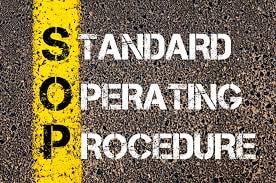The Ultimate Guide to Hiring a Part-Time Real Estate Virtual Assistant
Why the Hell Are You Even Here?
If you’re still drowning in administrative support work, buried in emails, chasing leads, and trying to remember if you called that seller back—yeah, this one’s for you. Stop pretending you can “do it all” in wholesale real estate. You’re not Superman, and last I checked, there’s no cape in your real estate license renewal packet.
Here’s the truth: you’re the bottleneck. Your deals are stalling, your market presence is weak, and your process is a mess because you refuse to hand off the grunt work. A real estate virtual assistant isn’t a luxury—it’s your ticket out of self-inflicted chaos.
The Emotional BS of Letting Go

Let’s be real—handing over your business baby to a virtual assistant feels like trusting a stranger to drive your new house down the freeway. What if they screw up? What if they ghost you mid-job?
But listen—on the other side of that fear is the payoff: waking up to a clean calendar management schedule, seeing lead lists updated without you touching a keyboard, and having contracts prepped while you’re out closing a deal. You can’t scale in this industry if you’re chained to data entry and inbox purgatory.
Quit Playing Control Freak: Knowing When to Pull the Trigger
Here’s the deal—you hire a part time VA before you hire an acquisitions manager. Why? Because they handle the boring but critical real estate transactions that make the business hum while you keep your focus on sales and clients.
If you’re still micromanaging your own social media marketing, chasing down missing records, and answering every “I’m not interested” call, you’re wasting money. In wholesale real estate, the people who win are the ones who know when to offload low-value tasks so they can double down on the high-value ones.
VA vs. Acquisitions Manager: The Real Smackdown
An acquisitions manager is a sales assassin. Their job? Lock in the seller, negotiate hard, and get that buyer lined up. But throw them into administrative assistant work, and you’ll watch them crash and burn.
A real estate virtual assistant, on the other hand, is built for the behind-the-scenes grind—keeping your market campaigns organized, making sure every property file is where it should be, and tracking transactions so you don’t lose your shirt on a bad deal. Let your acquisitions people hunt; let your VA handle the support work that actually keeps the lights on.
We’ll keep moving into Part 2: Defining the Mission with that heavier keyword push.
Your VA Ain’t Psychic – Spell Out the Damn Goal
A real estate virtual assistant isn’t going to magically know what’s in your head. You’ve gotta define the mission or you’ll end up with sloppy administrative support and wasted payroll. The real estate industry runs on clarity—whether you’re talking to real estate agents, a buyer, or your own team.
Before you write a job post for that part time virtual assistant, figure out the main outcome you want. Is it handling real estate transactions? Is it scrubbing property data? Or is it keeping your calendar management on point so you can focus on sales and clients? If you don’t lock in that process now, you’ll be micromanaging forever.
The 48-Hour Brain Dump – Build Their To-Do List

For two straight days, write down every damn thing you do. Include the repetitive market tasks, data entry, lead searching, and services you run every week. Then cross off the stuff only you can do—negotiating with a seller, closing contracts, or running a high-dollar purchase.
Everything left? That’s your VA’s world. And don’t be soft—load them up. A virtual assistant can handle a company’s routine grunt work better than most in-house administrative assistants, especially if you train them right.
Core Money-Makers They Should Own

Marketing & Lead Gen – Your VA should run social media marketing, post open houses, and manage the application process for incoming applicants if needed. In wholesale real estate, the more leads in your pipeline, the more profit you see.
List Hygiene – A real estate virtual assistant can keep your property lists clean, remove dead leads, and tag owner info so you’re not wasting ad spend.
Campaign Management – From direct mail services to follow-up emails, they’ll keep it all moving. They make sure each buyer or seller interaction is logged so your brokerage stays compliant with regulations.
The Research Muscle – Due Diligence Done Right
Your VA’s got the time to do the searching you don’t. They can pull tax records, verify value, and dig for missing professional details on homeowners. They’ll flag properties that might need legal review before you waste energy on them.
This isn’t just about busywork—it’s about freeing you to perform high-value actions while your remote assistant keeps the business machine humming.
Cold Calling VAs – Filters, Not Closers
A real estate virtual assistant who’s cold calling ain’t there to wine-and-dine a seller into a contract. Their skills are in searching for that tiny sliver of interest—just enough to hand off to you or your acquisitions person who can close.
Give them a simple process: confirm they’re talking to the owner, confirm the property is for sale, then pass it to the closer. That’s it. No rambling, no winging it. They’re not your top sales gun; they’re the scout that finds the battle.
Why Accents & Culture Can Kill a Deal
In wholesale real estate, rapport is the name of the game. But if your cold calling virtual assistant sounds like they’re halfway around the world, the buyer or seller might think scam before you even pitch.
The fix? Let them assist with first contact, then pass warm leads to a licensed local professional who knows the market slang, neighborhood gossip, and how to connect without sounding like a script. You’ll close more and waste less money.
Build the Workflow for Maximum Results
Set the job up so your administrative support VA has clear metrics. They should perform dozens of calls daily, with each “yes” sent directly to a full time closer. Keep call times under two minutes and make it sound like a “mom-and-pop” company operation.
This separation of roles keeps your closers selling and your VAs doing what they do best—support work, follow-up services, and consistent lead flow that feeds your business.
SOPs – Your Sanity Saver

Every administrative assistant needs training, and every task needs a playbook. Without clear Standard Operating Procedures, you’re inviting chaos. Even a seasoned VA in the real estate industry can’t guess exactly how you want it done.
Think PB&J—what you call “make a sandwich” might take 40 micro-steps when explained to someone new. Break it down that way for everything from CRM updates to contracts.
What a Real SOP Looks Like
- What: Handle inbound calls from open houses or selling campaigns.
- How: Follow the exact script. Note buyer name, property address, value, and any interest hints.
- Metrics: Live answer rate, accurate record entry, and smooth process handoff to the next position in your pipeline.
This is how you create repeatable results and protect your profit margin.
Where to Find VAs That Don’t Suck
Finding the right real estate virtual assistant is like wholesale real estate—you’ve gotta know where to hunt and how to filter out the tire-kickers.
- Specialized Groups – Facebook communities full of remote VAs who already get the real estate industry game.
- Freelance Platforms – Upwork —cheap labor, but you’ll need the knowledge to vet hard so you don’t waste money on bad hires.
- Pre-Trained Services – Companies that provide trained VAs for brokerage or real estate transactions, but expect to pay a higher price upfront.
Crafting a Job Post That Brings A-Players
Your ad isn’t just an application process—it’s a filter. State exactly what you want: full time or part time, exact hours, services you expect (like calendar management or data entry), and mandatory gear.
Drop a line on EEOC compliance—yes, you hire regardless of gender identity, sexual orientation, national origin, or disability—because it’s not only legal but it makes your company look professional.
Test Before You Waste Time
Don’t go into interviews blind. Send every applicant a short script tied to a sample property, have them present a mock call, and record it. You’ll hear if they’ve got the skills, tone, and interest for the position.
If they can’t follow simple process steps before you’ve even hired them, you already know they’ll tank in a live selling situation.
Key Interview Questions

- “What services have you provided for real estate agents or investors before?”
- “Have you managed open houses or transactions?”
- “How do you handle contracts and buyer communication?”
This lets you see if they can actually perform under pressure or if their employment history is just fugazi.
Making the Hire – Onboarding and Setting Expectations and Part 8: Long-Term Growth – Scaling With Your VA.
Don’t Be Cheap – Pay What They’re Worth
If you want a real estate virtual assistant who knows the real estate industry, can handle real estate transactions, and won’t ghost you mid-process, you’ve gotta pay them right. Stop crying over cost—a good VA’s gonna make you more profit than they take out of the bank.
Paying bottom dollar for part time help will just get you entry level talent who’ll bounce the second they find a full time gig. The sweet spot? $8–$10/hour for solid skills in services like calendar management, data entry, and administrative support.
The 90-Day Test Drive
Your VA’s first three months is like a probation period in employment—it’s where you see if they’re going to stick. This is where training is critical. Walk them through the property pipeline, your CRM, and how to assist in selling without crossing into acquisitions territory.
Keep communication tight. Daily updates let you monitor performance while giving them a chance to show knowledge growth.
Onboarding Like a Pro
Your company should have a professional onboarding process that’s clean, organized, and remote-friendly. Include SOPs for transactions, contracts, services, and lead searching. Make sure they know how to talk to clients, record value details, and represent your business like a licensed pro.
Growing From Helper to Asset
Once your VA’s locked in, they can handle more than just administrative assistant grunt work. A sharp one will expand into life-saving roles like brokerage coordination, leasing prep, or even basic resources management for your sales team.
Treat them like part of the business. Keep them engaged, keep training them, and you’ll have a support system that grows with your deals.
Got it — here’s your final chunk with a conclusion that “hits like a bag of bricks” in full M.O.B. voice.
The ROI of Delegation – Proof’s in the Payday
Hiring a real estate virtual assistant isn’t some trendy “productivity hack.” It’s the difference between being chained to your laptop 12 hours a day and building a business that runs even when you’re not breathing down its neck.
Every repetitive task you hand off is a piece of your life back. Every contract, transaction, and lead your VA touches without you lifting a finger is proof you’re finally playing the game like a boss—not like some rookie chasing their own tail.
And when that VA helps close just a couple of extra deals, that “expense” turns into a fat stack of profit you can actually feel. That’s ROI you can measure in your bank account, your time, and your sanity.
Your Next Step – Stop Thinking, Start Doin

You can keep reading guides like this, making lists, and talking about what you’ll do “someday.” Or you can make the move today and take control of your operation.
Delegation isn’t weakness—it’s how killers in this game scale without burning out. The only thing standing between you and the next level is your ego and your excuses.
So here’s the deal: hire the help. Train them. Trust them. And then get out of your own way.
Because the longer you wait, the longer you stay stuck hustling in circles while somebody else with the same tools, the same market, and the same opportunity builds the empire you should’ve claimed.